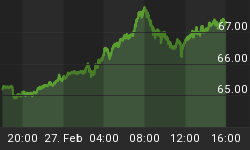Police in Guangdong, China, on Thursday shuttered a giant online gambling ring and seized more than 10 billion yuan ($1.5 billion) in World Cup bets denominated in cryptocurrencies such as bitcoin, ethereum and litecoin. The officers also detained six people believed to be behind the crime and froze five million yuan in their accounts.
The ring, which was hosted in the dark web and was accessible using only untraceable search engines, strictly accepted cryptocurrencies and has become the first cryptocurrency crime involving a major sporting event.
The syndicate had managed to attract more than 300,000 players from diverse countries in its eight months of operation thanks to an army of 8,000 recruiting agents who earned commissions by luring in new members through an elaborate pyramid scheme. The bookmaker manipulated the winning odds to allow just a small number of people to actually win.
Gambling is strictly prohibited in mainland China, with state lotteries being the only legal operators. Despite its massive size, the latest incident is far from isolated.
Chinese law enforcement officials have launched a major crackdown on a string of gambling syndicates that have sprung up during the World Cup season. Just Last week, Beijing police said they had broken up a gambling ring that had accumulated World Cup bets worth 320 million yuan ($47.8 million) and arrested more than 40 suspects.
So far, a total of 540 suspects from over 20 gambling rings have been arrested and 260 million yuan related to the criminal activities frozen. Related: The Exorbitant Cost Of Getting Ahead In Life
The crypto case, however, remains the biggest and most elaborate.
Last September, the Beijing government shut down all local crypto exchanges and banned ICOs in what it termed as their potential to create financial instability.
That seems to have worked: The Chinese central bank recently announced that the yuan-bitcoin trading pair had dropped to less than one percent of the total world bitcoin trading activity.
Cryptocurrency Ponzi Schemes
Cryptocurrency ponzi schemes, however, are hardly anything new. This Redditor has listed more than 100 existing and defunct ICOs that are potential cryptocurrency pyramid schemes.
Scammers have been making big money off unwitting investors who want in on the latest digital gold rush but have little idea how the technology works. ICOs have proven to be catnip for cryptocurrency scammers due to their growing popularity as well as minimal checks and balances in the crypto ecosystem.
A good case in point is India’s OneCoin, which pitched itself as the next bitcoin in what turned out as one of the biggest crypto pyramid schemes ever. OneCoin’s much-trumpeted about blockchain technology consisted of nothing more than a glorified Excel spreadsheet with a fugazi portal that displayed fake transactions. OneCoin was heavily promoted by founders with fake credentials, but still managed to attract hundreds of millions of dollars over a period of several months before international investigators finally got wind of the scam.
Related: 10 Countries Feeling The Heat As The Trade War Escalates
Another case is the botched Gnosis ICO, which sold out its GNO tokens worth $12.5 million in a record 12 minutes, only for investors to later discover that the founders had retained at least 95 percent of the tokens.
That served as another reminder that despite blockchain projects touting the idea that no single token holder can gain control of the system, there is really nothing like equitable distribution of power and the leaders are the ones who usually end up with the lion’s share.
By Alex Kimani for Safehaven.com
More Top Reads From Safehaven.com:
















